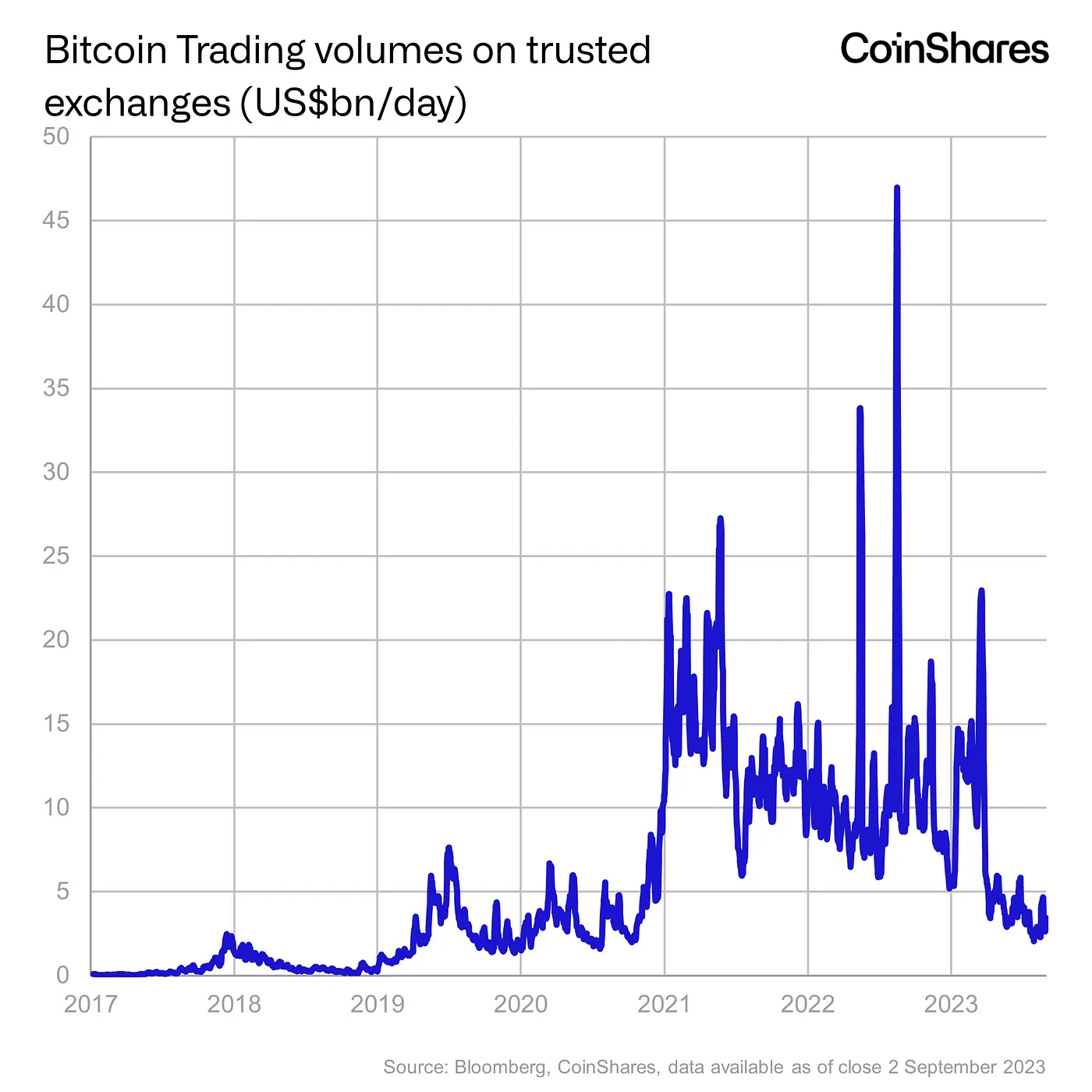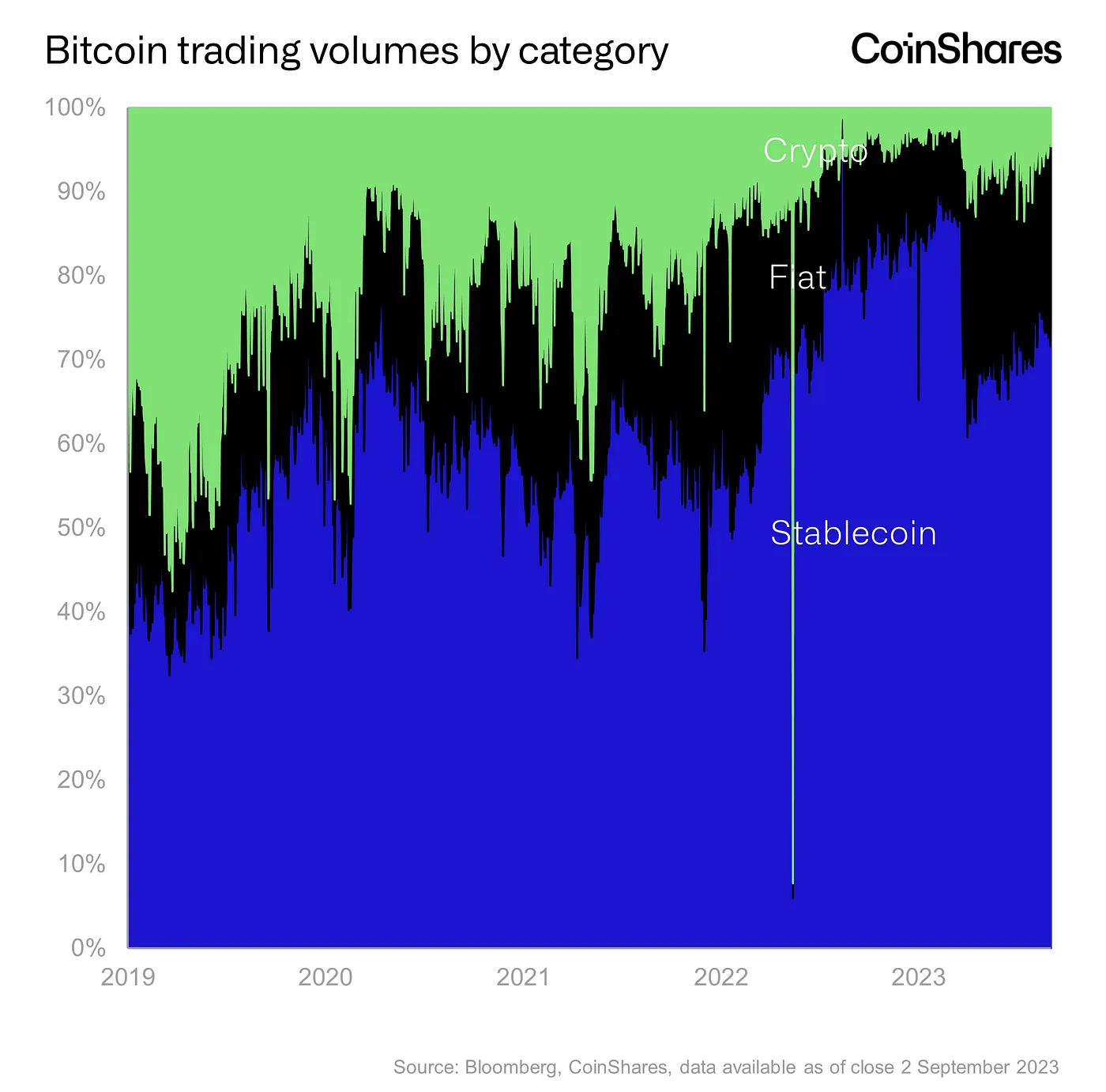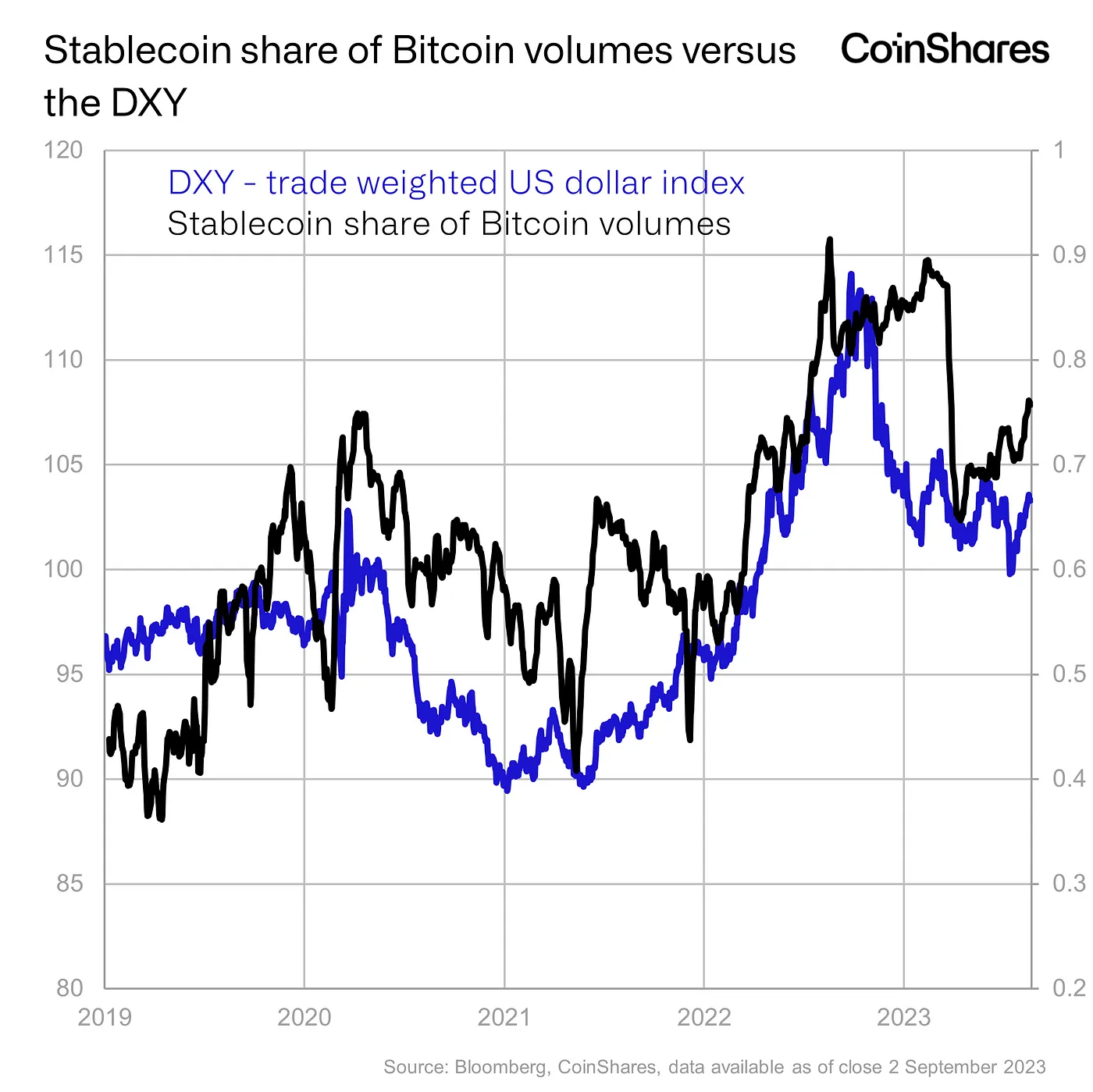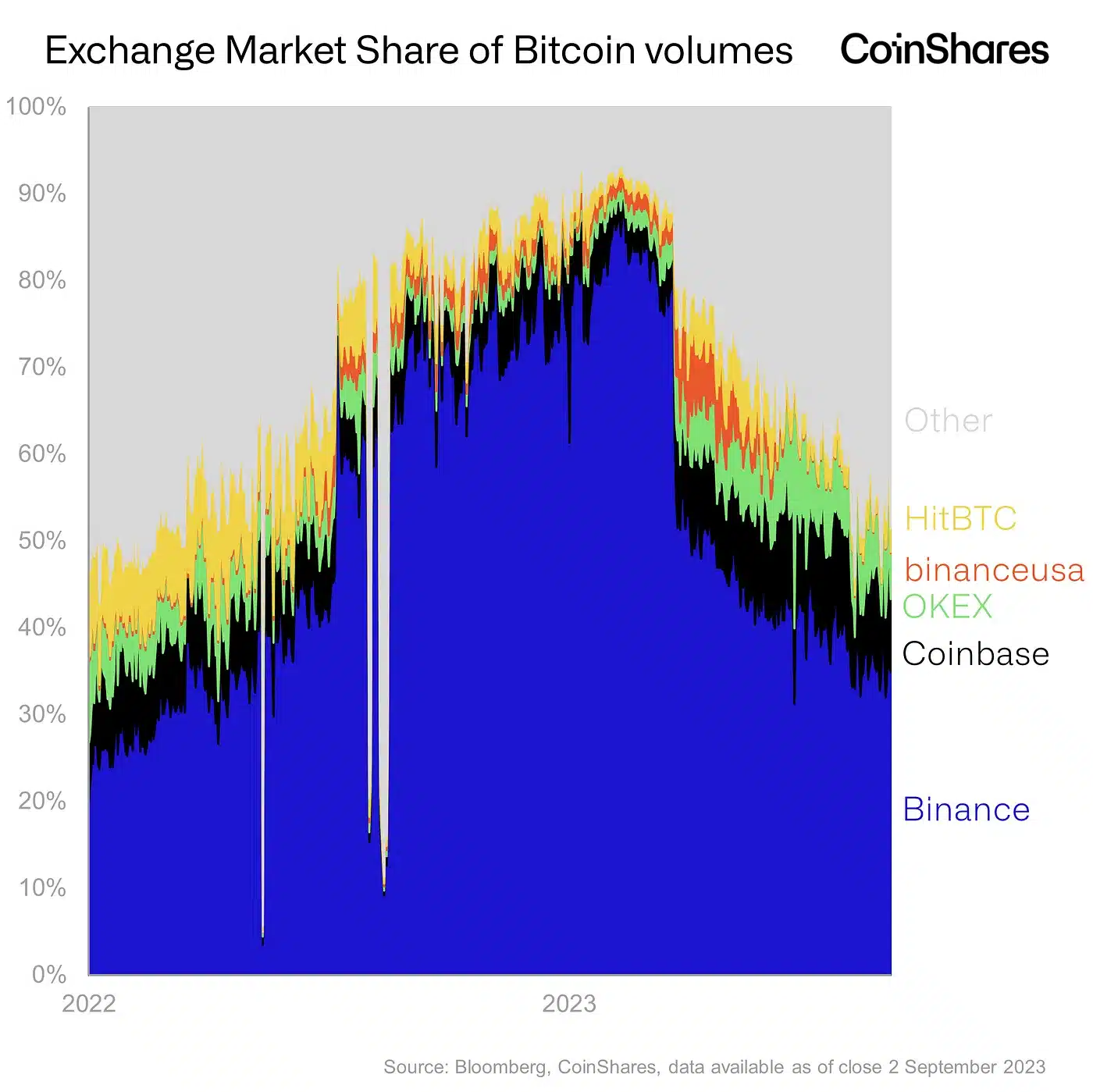Reasons behind the sharp decline in Bitcoin volumes in 2023

- Sharp fall in the DXY index impacted stablecoin share of Bitcoin volumes in 2023.
- Binance was guilty of being a major contributor to the decline.
Bitcoin [BTC] in 2023 hasn’t been what it used to be. Volatility at record lows, weak exchange volumes, and a simmering disinterest among day traders has become the norm for the asset class, which not long ago built the fortunes of many in the 2020-21 bull market.
Read Bitcoin’s [BTC] Price Prediction 2023-24
James Butterfill, Head of Research at digital asset investment firm Coinshares, cited inputs from the organization’s trading team to emphasize how market makers and retail traders have been steadily exiting exchanges in the recent months. “Some are now operating on a 24-hour schedule for just five days a week, as opposed to daily,” Butterfill added.
Daily average volumes dip in 2023
A look at daily trading volumes in 2023 was enough to paint the contrast. On average, about $7 billion worth of transactions involving Bitcoin were settled on centralized exchanges this year, markedly lower than $13.8 billion and $11 billion witnessed in 2021 and 2022 respectively.
Notably, starting from Q2 2023, there has been a considerable decline in trading volumes, reminiscent of the pre-bull run period of 2019-20.
Butterfill brought attention to some fascinating discoveries while explaining the reasons behind the fall in trading activity.
Depleting demand for USD-pegged stablecoins
As evident below, the initial phase of the 2021 bull run was powered by trades against altcoins and fiat currencies. However, progressing to late 2021, the appetite for U.S. Dollar-backed stablecoins suddenly increased. The trend continued throughout 2022 and Q1 2023.
The growing demand for stablecoins, and by extension USD, coincided with the beginning of the U.S. Federal Reserve’s rate-hiking cycle. In March 2o22, the central bank approved its first interest rate increase in more than three years, as part of its attempts to fight surging inflation.
Interest rate hikes by the Fed applies significant upward pressure to the U.S. Dollar Index (DXY) as the policy results in increased demand for dollars from foreign investors.
Naturally a strengthening USD prompted investors across the world to liquidate their Bitcoin holdings in favor of stablecoins. Notice how DXY was strongly correlated to the market share of stablecoins in Bitcoin trading volumes around that period.
However, inflation in the U.S. slowed down comparatively in 2023, raising hopes that the cycle of Fed’s aggressive supply hikes would eventually come to a halt. This resulted in a sharp fall in the DXY and consequently the high stablecoin volumes came tumbling down.
Binance-led decline
While a drop in stablecoin share of Bitcoin volumes could partially explain the low trading activity on exchanges in 2023, there were other glaring factors at play. Ironically, the world’s largest crypto exchange Binance was one of the major contributors to the decline.
This decrease was primarily due to Binance ending its no-fee trading program in March earlier this year. As per an earlier report by Kaiko, zero-fee trade volume made up the bulk of the total volumes on Binance, nearly 66%, until mid-March 2023. Note that Binance succeeded in scooping out a significant share from rivals after the attractive scheme was introduced.
Add to this, the increasingly hawkish stance adopted by U.S. regulators on crypto participants. Binance has been on the radar of U.S. Securities and Exchange Commission (SEC) in 2023, with the latter initiating a lawsuit against the crypto behemoth in June.
Fears of a replay of an FTX-like situation, where many were locked out of the exchange, led to a gradual withdrawal from Binance.
Additionally, the considerable decline in Binance USD [BUSD] volumes, again precipitated by regulatory crackdown, added to Binance’s woes in 2023.
Bitcoin has more addresses than…
While Bitcoin has been lackluster on trading platforms, there wasn’t any impact on its global adoption trends. According to a post by popular on-chain sleuth Ali Martinez dated 3 September, the total number of BTC addresses registered a new milestone. With a count of 48.5 million, Bitcoin had more wallets than the entire population of Spain.
Today, the number of #Bitcoin holders has exceeded the entire population of Spain ??, boasting more than 48.5 million $BTC hodlers! pic.twitter.com/uWQVRQsLm6
— Ali (@ali_charts) September 3, 2023
Is your portfolio green? Check out the BTC Profit Calculator
It should be noted that there is no 1:1 mapping between a holder and wallet as multiple wallets can be linked to a single holder of BTC.
At the time of writing, BTC exchanged hands at $25,961.49, per data from CoinMarketCap.










